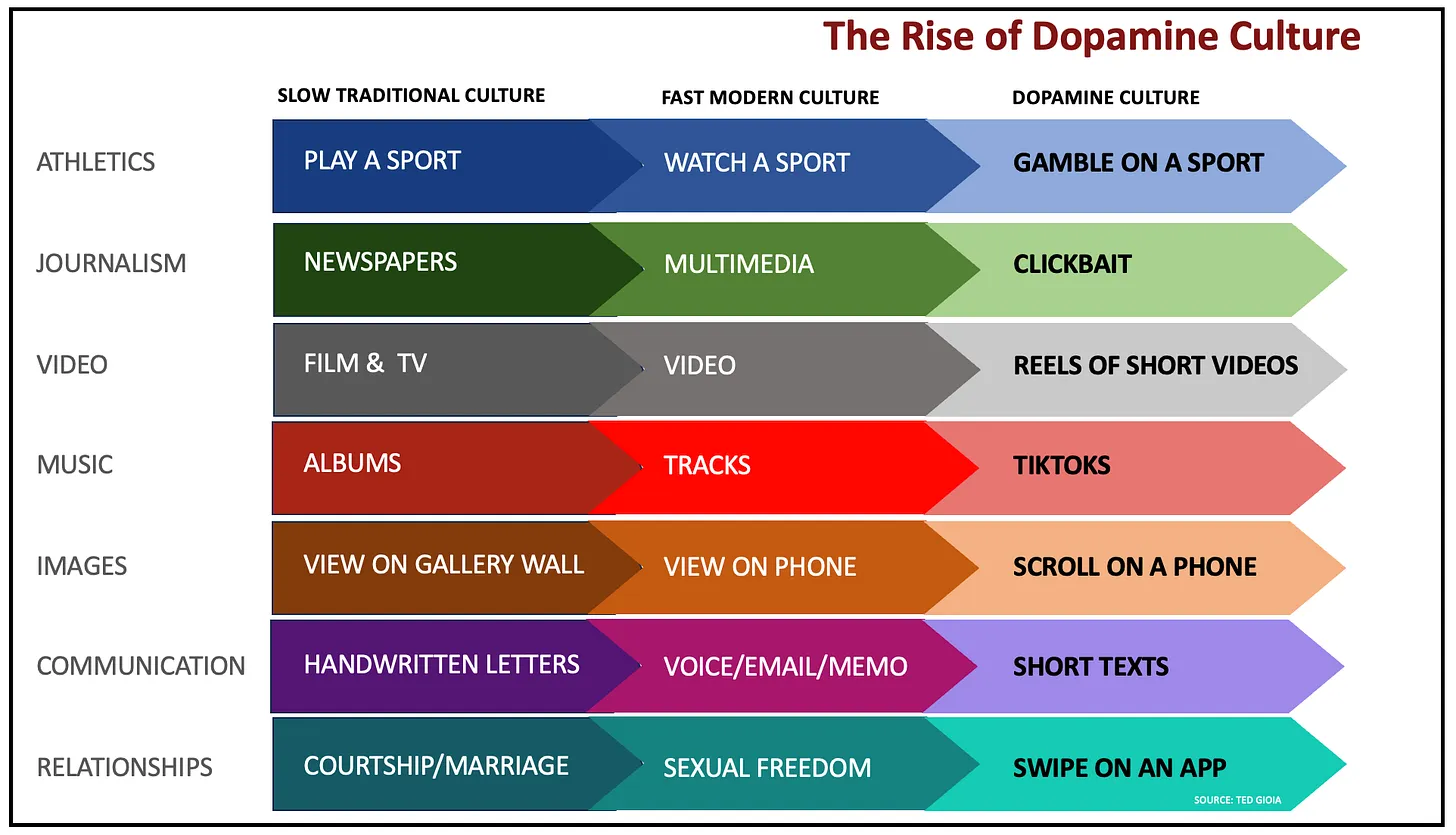[[Stephanie Booth p]] on how to get away from doomscrolling in the face of traumatic events, such as here the horrific fire in Crans-Montana (on the 25th year of a similar event in Volendam, 14 young deaths, 200 severely wounded w burns, in a 3minute fire from small fireworks),
- Jan 2026
- Aug 2025
-
www.honest-broker.com www.honest-broker.com
-
The State of the Culture, 2024<br /> by [[Ted Gioia]]<br /> accessed on 2025-08-18T08:53:09

-
- Nov 2024
-
experiments.myhub.ai experiments.myhub.ai
-
People do not actually spend a lot of time browsing junk content,
The vast majority of people browsing social media streams via the web are doing just this: spending a lot of time browsing junk content.
While much of this "junk content" is for entertainment or some means of mental and/or emotional health, at root it becomes the opiate of the masses.
-
- Sep 2024
-
chicagoreader.com chicagoreader.com
-
That desire for a “digital detox” is frequently brought up amongst typewriter aficionados—it’s an escape from pop-up ads, spyware, AI-generated content, doomscrolling, deepfakes, obnoxious comments sections, and all the other headaches that hit you at Internet speed. A piece of paper in a typewriter, on the other hand, is a simpler connection of your thoughts tapped out letter by letter, mistakes and all.
-
- Feb 2022
-
Local file Local file
-
Even though results of these studies are currently under intensescrutiny and have to be taken with a grain of salt (Carter andMcCullough 2014; Engber and Cauterucci 2016; Job, Dweck andWalton 2010), it is safe to argue that a reliable and standardisedworking environment is less taxing on our attention, concentration
and willpower, or, if you like, ego. It is well known that decision-making is one of the most tiring and wearying tasks...
Having a standardized and reliable working environment or even workflow can be less taxing on our attention, our concentration, and our willpower leaving more energy for making decisions and thinking which can have a greater impact.
Does the fact that the relative lack of any decision making about what to see or read next seen in doomscrolling underlie some of the easily formed habit of the attention economy? Not having to actively decide what to read next combined with the random rewards of interesting tidbits creating a sense of flow is sapping not our mental energy, but our time. How can we better design against this?
-